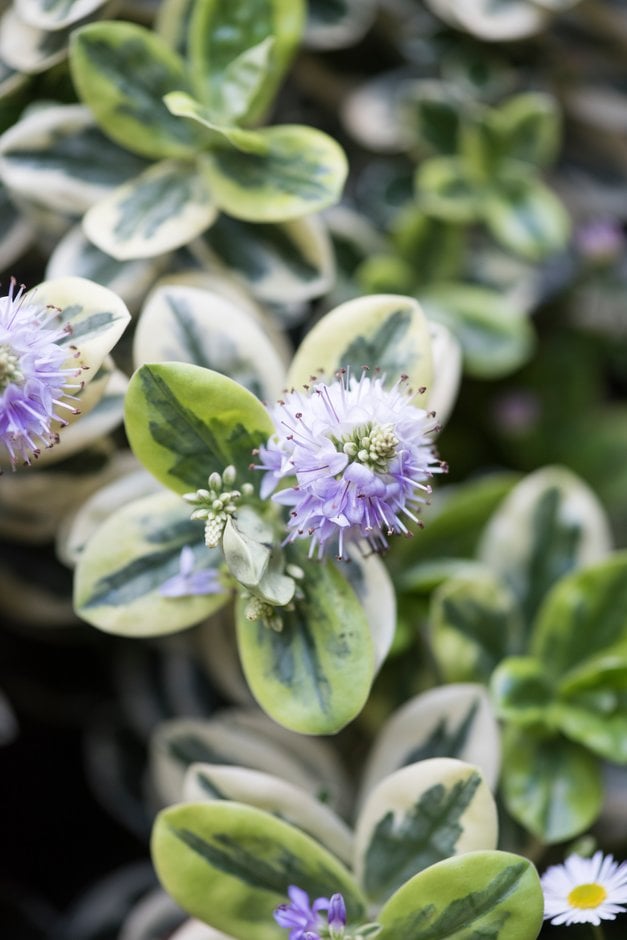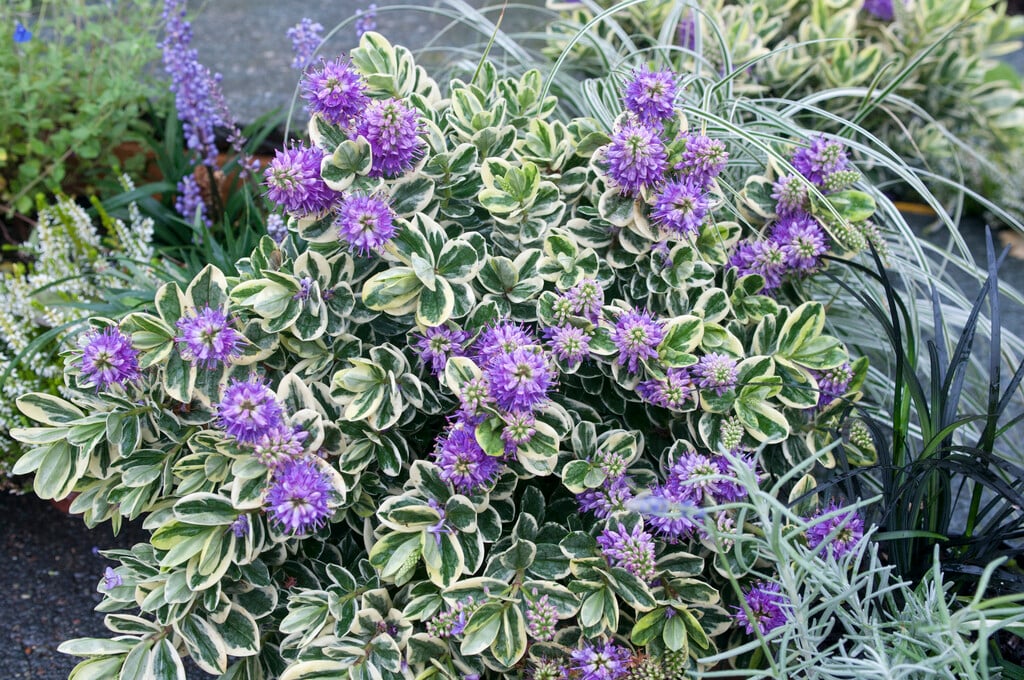Hebe 'Silver Queen'

hebe 'Silver Queen'
A bushy, spreading, evergreen shrub to 1m in height with broadly elliptic foliage which emerges silvery-green, turning to green with creamy-yellow to white margins. Bright violet-purple flowers appear in short racemes from midsummer through to autumn. A great variety for patio containers, courtyard planting or for a coastal location
Synonyms
Veronica × franciscana 'Variegata'Veronica elliptica 'Variegata'
see moreHebe elliptica 'Variegata'
Hebe 'Silver Queen'
Hebe × franciscana 'Variegata'
Size
Ultimate height
0.5–1 metresTime to ultimate height
5–10 yearsUltimate spread
0.5–1 metresGrowing conditions
Moisture
Moist but well–drained, Well–drainedpH
Alkaline, NeutralColour & scent
| Stem | Flower | Foliage | Fruit | |
| Spring | Green Grey Silver Variegated | |||
|---|---|---|---|---|
| Summer | Purple | Green Cream Yellow White Variegated | ||
| Autumn | Purple | Green Cream Yellow White Variegated | ||
| Winter | Green Cream Yellow White Variegated |
Position
- Full sun
- Partial shade
Aspect
South–facing or West–facing or North–facing or East–facing
Exposure
Exposed or ShelteredDrought resistance
Yes Hardiness
H3Botanical details
- Family
- Plantaginaceae
- Native to GB / Ireland
- No
- Foliage
- Evergreen
- Habit
- Bushy
- Genus
Veronica can be annuals, perennials or sub-shrubs with paired leaves and small flowers usually in terminal or axillary racemes or spikes
- Name status
Accepted
How to grow
Cultivation
Easy to grow in a moist but well-drained soil in sun or partial shade. See https://www.rhs.org.uk/plants/trials-awards for further information about RHS plant trials and awards See https://www.rhs.org.uk/plants/trials-awards for further information about RHS plant trials and awards
Propagation
Propagate by semi-hardwood cuttings
Suggested planting locations and garden types
- Coastal
- Patio and container plants
- Wildlife gardens
- Low Maintenance
- Garden edging
- Ground cover
Pruning
Pests
May be susceptible to aphids
Diseases
May be susceptible to downy mildews, fungal leaf spot, fungal rot, Phytophthora and sometimes honey fungus
Love gardening
Sign up to receive regular gardening tips, inspiration, offers and more
View our Privacy Policy
Get involved
The Royal Horticultural Society is the UK’s leading gardening charity. We aim to enrich everyone’s life through plants, and make the UK a greener and more beautiful place.

